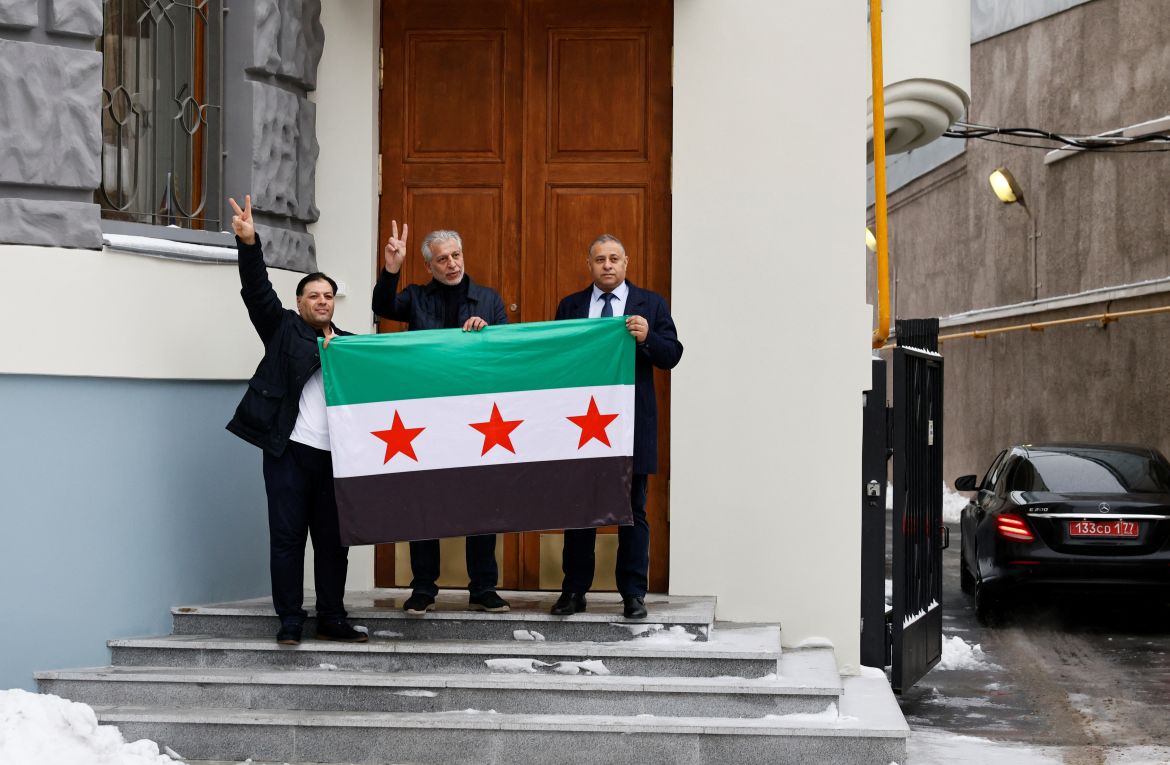
With the fall of Bashar al-Assad’s regime, Russia finds itself grappling with a complicated legacy of its involvement in Syria and recalibrating its position with the new transitional government. Moscow’s long-standing support for Assad now faces scrutiny, as evidence emerges of the regime’s systemic corruption and failure to secure stability despite years of Russian backing.
Since Assad fled Damascus to seek asylum in Moscow on December 8, Russian President Putin has maintained a cautious distance. Kremlin spokesperson Dmitry Peskov confirmed Assad’s asylum status but emphasized there were no plans for the two leaders to meet. “He is secured,” Deputy Foreign Minister Sergei Ryabkov assured reporters. Meanwhile, Assad joins a list of controversial figures granted asylum in Russia, including Serbian war criminals and others seeking refuge from international prosecution.
For years, Assad was one of Moscow’s most significant Middle Eastern allies, with Russia intervening decisively in 2015 to prop up his regime. The Kremlin’s military support, including thousands of sorties for airstrikes from the Hmeimim airbase, was critical in turning the tide of Syria’s civil war. Moscow framed its role as a guarantor of stability, often portraying Assad as a bulwark against “terrorism.”
However, the regime’s collapse exposed the hollowing out of its military and administrative structures. Assad’s flight marked the culmination of years of decay, during which Russian military support could no longer mask the regime’s internal weaknesses.
Russia’s involvement in Syria was not purely altruistic. The Mediterranean naval base in Tartus, established in the 1970s, has been a cornerstone of Moscow’s military strategy, providing critical logistical support. Yet with Assad gone, the future of the base remains uncertain. Satellite imagery shows Russian warships anchored offshore, signaling a tenuous hold on the facility.
Moreover, the Kremlin faces backlash from its domestic pro-war bloggers, who lament the losses of Russian soldiers and contractors during the Syrian intervention. According to BBC Russia, over 540 Russian personnel were killed in Syria between 2015 and 2024, casualties now seen as sacrifices for a regime that ultimately fell apart.
In the wake of Assad’s ouster, Russian state media swiftly altered its narrative, referring to Syria’s revolutionary forces as “progressive” and emphasizing their inclusive policies. The Syrian Embassy in Moscow has already replaced the regime’s flag with that of the revolution, signaling a rapid shift in allegiances.
Anatoly Kuzichev, a prominent Russian talk show host, encapsulated the Kremlin’s pivot by stating, “Russia has always believed that Syrians should determine their future.” This about-face underscores Moscow’s pragmatic approach, as it seeks to maintain influence in Syria without the baggage of Assad’s regime.
Assad’s downfall leaves a complicated legacy for Putin. While Moscow can claim credit for temporarily stabilizing Assad’s rule, the regime’s systemic corruption and reliance on Russian and Iranian support ultimately led to its undoing. Assad’s transformation of Syria into a narco-state producing Captagon amphetamines further tarnished the Kremlin’s association with him.
The Syrian revolution’s rapid advance through Aleppo, Hama, and Damascus demonstrated the fragility of Assad’s forces, many of whom abandoned their posts without resistance. By the time the revolution entered the capital, there was little left of the regime’s once-feared military infrastructure.
As Russia engages with Syria’s new transitional government, it must balance its desire to retain influence with the reality of diminished leverage. The Kremlin’s pivot away from Assad reflects its need to protect its strategic interests while distancing itself from a regime widely regarded as criminally corrupt and brutal.
For Syrians, Assad’s departure offers a glimmer of hope for a brighter future. Yet the challenges of rebuilding a country devastated by over a decade of war remain immense. Russia’s role in this process is uncertain, as it navigates the fallout of its close ties to a fallen dictator.
While Putin granted Assad asylum to protect his legacy, the Kremlin’s careful maneuvering suggests that its primary focus is preserving its regional influence rather than defending its former client.








